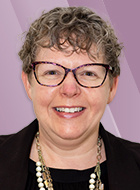
(Photo credit Clayton MacGillivray)
Location
Calgary, Canada
Term of office on council:
2021-2024 First Term
Sarah is an associate professor at the Werklund School of Education, University of Calgary, Canada. She is the Editor-in-Chief of the International Journal for Educational Integrity and the book series editor for Ethics and Integrity in Educational Contexts. Sarah sits on the University of Calgary Conjoint Faculties Research Ethics Board (CFREB), is a Founding Member and Steering Committee Member of the Alberta Council on Academic Integrity. She has authored and co-published many papers on topics such as self-plagiarism, academic integrity policy, text-matching software and research ethics.
2023 competing interest statement for Sarah Elaine Eaton (PDF)
Getting to know you
An interview with Sarah Elaine Eaton
What path has your work, studies or research taken that has led you to your position on COPE Council?
My research programme focuses on ethics in higher educational contexts including academic integrity (including plagiarism and contract cheating); research integrity; higher education leadership, policy, and governance. Some of the most recently published studies I have been involved with on these topics include Academic integrity policies of publicly funded universities in western Canada, The paradox of faculty attitudes toward student violations of academic integrity, and Academic integrity and mental health during COVID-19
What are some of the more common publishing ethics issues you and your colleagues have dealt with?
Common publishing ethics issues I encounter include authorship disputes, which are among the most contentious issues to resolve, involving matters such as named authors and author order. I also work on cases of how graduate students are treated in the publication process.
Are there any areas or aspects of your work, or academic publishing in general, that you feel are missing guidelines or standards that you think would be useful?
I would like to see more training for graduate students regarding publication and ethics not only so they can better advocate for themselves, but also so they are better prepared when they take on faculty and researcher roles themselves. There is a desperate need for graduate students, research assistants, and post-doctoral fellows to receive training related to publication ethics. They are so often left out of conversations and caught up in situations outside of their control. In general individuals in these groups lack power and authority, so more training would help them develop a sense of agency and accountability early in their careers.
Do you think there are any particular obstacles that make it harder for any players in the publishing cycle to comply with commonly adopted ethical practices?
Lack of accountability at the institutional level is a particular obstacle to spreading awareness of ethical standards, and enhancing compliance with commonly adopted ethical practices. For example, as a publicly funded institution, our university produces an annual report related to student misconduct (both academic and non-academic). There is no such parallel report for faculty or researcher misconduct. If we hold our students accountable to act ethically, so too, should we hold our faculty and research staff accountable.
I believe there is deep reluctance to make such information publicly known, due to the perceived impact on reputational damage; however, if all institutions made such reports public, then higher education as a system could begin to address these issues at a systemic level.
Are there any tools or services, or processes you think would help enhance awareness or engagement with good ethical conduct?
The resources that COPE produces are fantastic. I would like to see existing resources distributed more widely and promoted as much as possible. Often when I share COPE resources with colleagues they are simultaneously delighted and surprised, as they had not known of them previously. I think it is not a question of more tools or services or processes necessarily, but also communicating the extent to which existing resources can be further shared and used.
What are you hoping to get your teeth into at COPE? Are there any projects in particular you would like to get involved in, or any initiatives you have in mind?
I am eager to serve COPE in any way I can. I just know I am going to learn and grow as a professor, researcher, and journal editor. I am grateful for this opportunity and I look forward to learning from and with colleagues at COPE.
Photo copyright Jason Hu